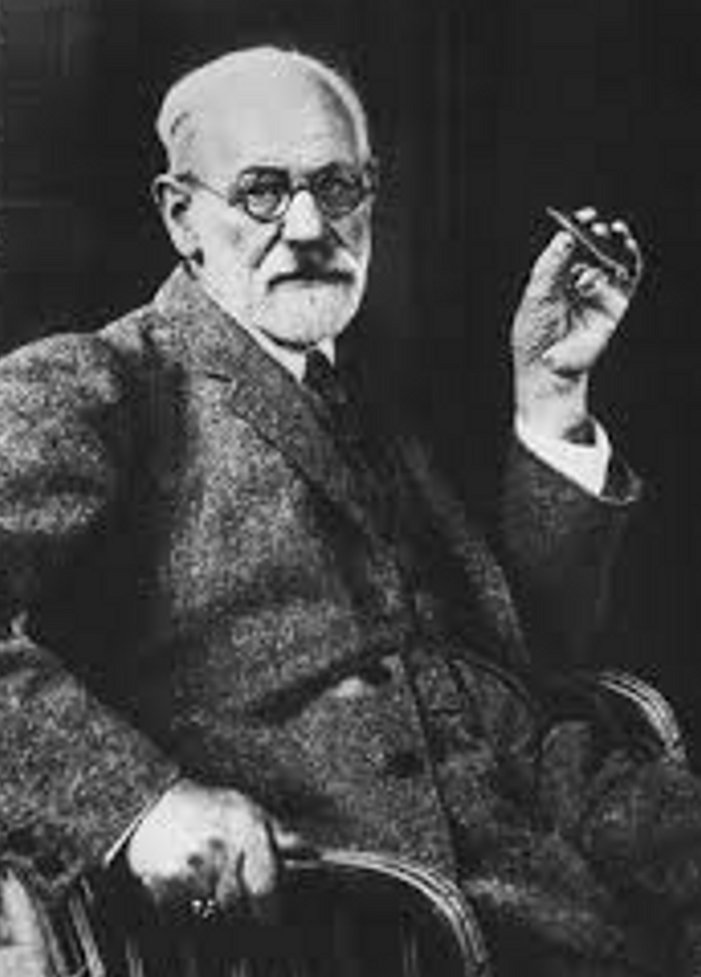UNITED STATES—Freud in New York the latest Otis Quigley Keefauver novel (Norton 897 pages) explores one of history’s intriguing what-ifs: what if Sigmund Freud had sized up Hitler’s threat sooner and immigrated to New York instead of London? This rambling but ambitious mish-mash of naivete and fantasy was inspired by the amazing but true New York link in the Freud family, but it totally lacks the attention to detail that made Keefauver’s Toilet Paper, a riveting exploration of the societal effects if toilet paper had not been invented.
In real life, Freud’s nephew Edward Bernays was a brilliant adman who “sold” World War I to the American Public and used Freud’s theories to break the taboo on females smoking in public. In 1930, he staged a march down Fifth Avenue and had debutantes defy convention and publicly puff “freedom torches,” shamelessly exploiting the Freudian symbolism of the female mouth and phallic cigarette and overnight doubling the cigarette market for his client, the American Tobacco Company. In the novel, Eddie, who comes across as likeable but Machievellian shlub, twists Uncle Sigmund’s arm to come to New York, “We’ll make a great team.”
Sigmund’s arm falls off, thus revealing that the great psychoanalyst’s health is much worse than his doctors have led him to believe. His daughter Anna is especially relieved her father will be going to safer shores, even if it means missing the Berlin Olympics. (He was particularly keen about the javelin throw.) The hard-headed Freud had gruffly dismissed urgings that he leave Germany since 1932 and seems oblivious to the exodus around him, though his letters from the period routinely offer comments such as, “I saw a Mayflower truck in front of the Schoenbergs’ today.”
Once in New York Freud stops long enough, to interrupt his new theory on the origins of coasters related to the narcissistic self-hate of mankind, to accept an honorary doctorate at Columbia University. Freud gives graduating students this prescient view from Europe, “There are indeed storm clouds brewing over Europe, but there is only a 5 percent chance of rain . . . They have burned books, before long they will be burning people,“ Freud predicts, shocking his supposedly isolationist audience—another of the myriad historical inaccuracies that Quigley Keefauver expects the reader to be grateful for when it pays on in this novel’s alternate universe, but he is sadly mistaken.
Freud’s health (during the period covered in the novel he had advanced oral cancer that had started in the 1920s) was declining. The Bernays household which was well off but by no means wildly affluent were stretching the budget and sanity between medical expenses, the exorbitant bill for cigars from Alfred Dunhill, and Uncle Sigmund’s beloved bratwurst smuggled weekly by Moldavian refugees who in turn had to be smuggled back home.
“It’s costing an arm and a leg to keep you here,” the nephew fumes. “Because of you we’ve defaulted on a second mortgage in the Catskills. Look, Uncle Sig, I’m the only guy who’s ever really cashing in on the psychoanalysis thing.”
“You and the cartoonists who use the couch,” retorts an enraged Freud, who is enraged for many of the novel’s 800 pages. “If I had a pfennig for every time one of those cartoons appears…”
Eddie suggests that his uncle appeal to a mass audience. “Radio’s the thing. I’m sure there’s a place for you between ‘The Shadow’ and ‘Fibber McGee and Molly.’
So Sigmund puts on his Homburg and goes to Radio City Music Hall and becomes infatuated by a Rockette. It’s a December- January romance between Rhonda and Freud. He writes his dentist, Joseph Weinmann, “She is sufficiently comely to corroborate the primacy of lust as chief among emotions driving humans, and I think it’s time to schedule a teeth cleaning.” Freud follows Rhonda to Hollywood and becomes an avid jitterbugger, not great, but pretty good for a guy in the throes of stage 4. And he sees this dance craze as a backlash to Victorian repression. When Rhonda is doing a K Flip and grabs the arm that was wired on by the Museum of Natural History, it gets yanked off and the crowd, horrified by the sight of the torn limb, stampedes out of Florentine Gardens.
Rhonda is presumed trampled to death. The only remnant left by which Sig cam remember her is a mock turtleneck sweater. Freud is despondent and cannot figure out what the turtle is mocking.
to be continued..
Grady Miller is a humorist. You should read his early pieces in “Late Bloomer” (Amazon) selected from when he used to be funny.






